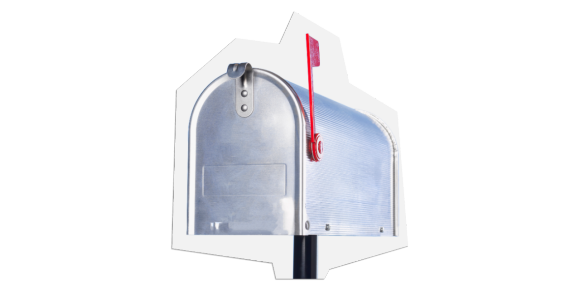International
US election 2024: impact on Swiss business
Landmark elections will take place in the USA in November 2024. What will the outcome mean for Switzerland and Swiss companies?

![]()
header.search.error
International
Landmark elections will take place in the USA in November 2024. What will the outcome mean for Switzerland and Swiss companies?

Content:
Elections always bring with them a certain degree of uncertainty. Events such as the assassination attempt on Donald Trump or Joe Biden’s decision to withdraw from the race in favor of Kamala Harris make this year’s US election even more unpredictable than previous election cycles. Polls point to a close election result in November. This article highlights the key implications of the US presidential election for Switzerland and Swiss companies.
We focus on what we consider to be the four most likely scenarios for the US election: 1) a unified Congress under Kamala Harris, 2) a divided Congress under Kamala Harris, 3) a unified Congress under Donald Trump and 4) a divided Congress under Donald Trump (figure 1). Regardless of the future US president, a unified Congress can more easily pass essential legislation, while a divided Congress limits the legislative mandate.
To assess the impact of the 2024 US presidential election on Swiss companies, the following factors should be analyzed: US trade policy, tax policy and regulations, healthcare policy and currency risks.
Although both Donald Trump and Kamala Harris promise protectionist measures, uncertainty in US foreign policy is likely to be higher under Trump. He favors tariffs and takes a unilateral approach to solving cross-border problems. His idea of a “tariff wall” – 60 percent on Chinese imports and 10 percent on imports from other countries, including Switzerland – would put a heavy burden on world trade.
However, we think it is more likely that tariffs will be imposed on a smaller scale and selectively. Countries with large trade surpluses with the USA are likely to be particularly affected by the import tariffs: in addition to China, these are mainly Mexico, Vietnam, Canada and, to some extent, Switzerland (figure 2). The tariffs would put Swiss companies at a competitive disadvantage and increase inflationary pressures in the US, which in turn could dampen US consumer sentiment.
Should Kamala Harris win the presidency, we generally assume that she will continue Biden’s course. Biden has taken a new path during his term in office and, with the Inflation Reduction Act (IRA) and other initiatives, has promoted an industrial policy that has not been seen in the US for a long time. Recently, Biden also increased import tariffs on various Chinese goods. These industrial policy measures fueled fears in the EU about its own competition policy, which led to the launch of the European Green Deal. Switzerland, which is heavily dependent on the EU and the USA for exports, is rather cautious when it comes to industrial policy, which could place Swiss companies at a competitive disadvantage. There are already early signs of a partial relocation of the activities of European, but also Swiss companies, to the USA in view of the generous fiscal subsidies.
Regardless of the outcome of the election, Swiss companies with close business ties to both countries, China and the US, will have to prepare for a tougher environment. The “Biosecure Act” deserves mention in this context: the bill is intended to prevent US federal agencies from buying drugs and other health products that involve certain Chinese contract manufacturers in their development and manufacture, in order to protect American patient data from the Chinese government. Although it is premature to estimate the exact impact of the planned law on Swiss pharmaceutical companies, their business relationships with Chinese biotech companies could suffer and access to the important US market could be impaired.
At the end of 2025, large parts of the “Tax Cuts and Jobs Act” (TCJA) – a comprehensive tax reform law that Trump signed at the end of 2017 – will expire. Although Republicans and Democrats differ on many details of the TCJA, there is bipartisan support for its extension, with the Democrats likely to increase taxes only for the top one percent of earners. The Republicans are more generous in several areas, such as corporate taxes, and would also go further in withdrawing IRA funding. Trump’s deregulation agenda could also provide positive impetus for Swiss companies operating in the USA.
Under Harris, however, mergers and acquisitions are expected to be more strictly regulated and supervised. Harris also recently caused a stir when she proposed price controls on food to combat “extortionate prices.” Interventions in pricing increase uncertainties for Swiss companies, as they may no longer be able to cover their costs when selling their products on the US market.
The USA is the world’s largest market for pharmaceutical products and therefore central to the Swiss pharmaceutical industry. Unlike in many other countries, the government is not allowed to set drug prices in the USA, which enables pharmaceutical companies to achieve above-average profit margins. But from 2026 onwards, the IRA will bring a change: for the first time, price negotiations will be allowed for some older medicines with expiring patents and this list is to be expanded in the future.
Although healthcare has not been the focus of the election debate so far, we expect Harris to increase bargaining power on government-mandated discounts in the IRA. Trump, on the contrary, could refrain from stronger regulations and criticize the IRA and the Affordable Care Act instead of proposing new health policy measures.
Donald Trump has repeatedly called for a weaker US dollar and has accused other countries, especially China, of currency manipulation during his term in office. Switzerland was also accused, but these accusations were dropped at the end of 2023. In order to force a devaluation of the US dollar, Trump could threaten trading partners with import tariffs. But devaluing the US dollar through coordinated measures with other countries is likely to be difficult in practice.
A devaluation of the US dollar against the Swiss franc would harm the Swiss export industry and benefit importers. Although Swiss exports react comparatively little to exchange rate fluctuations due to their pharmaceutical focus, these movements are nevertheless crucial for Swiss companies, as around 90 percent of listed companies generate their profits in foreign currencies.

Impulse newsletter for companies
In-depth analyses of the economy and the markets and top business tips sent directly to your inbox.
Due to its openness to trade, Switzerland is heavily dependent on the global economy. If the global economy weakens due to trade conflicts, this also affects Switzerland. Its pharmaceutical industry is directly affected by the outcome of the US election, as the USA is one of its main customers and it is therefore highly dependent on the politically dominated US pharmaceutical market. We recommend closely following the development of the US election on UBS ElectionWatch 2024 and preparing for different scenarios.
For an insight into the impact of the election at a global level, check out our “Critical Takeaways for Global Entrepreneurs” article.

Economist at the Chief Investment Office, UBS
Pascal Zumbühl joined UBS in October 2023 after working in research at Credit Suisse for four years and producing a number of analyses on Swiss business matters. He has extensive experience in research on start-ups, SMEs, sustainability in the corporate world and succession planning.
Also of interest to you
We are happy to take care of your concerns directly.